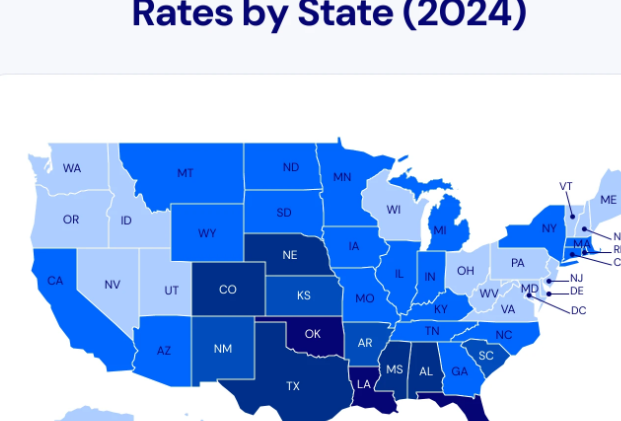Business Insurance Coverage
Business insurance coverage is essential for any entrepreneur looking to protect their investments and ensure the longevity of their operations. Whether you’re a small business owner or part of a large corporation, the unpredictable nature of the business world necessitates a strategic approach to managing risk. This review will explore the various facets of business insurance coverage, including its features, specialties, uses, and the overarching themes that define its importance in today’s economy.
Features of Business Insurance Coverage
Business insurance coverage encompasses a wide range of policies designed to safeguard businesses against various risks. Here are some of the key features:
- Protection Against Financial Loss: Business insurance helps mitigate financial losses caused by unexpected events such as accidents, natural disasters, or lawsuits.
- Liability Coverage: Most business insurance policies include liability coverage, which protects businesses from claims resulting from injuries and damage to others.
- Property Protection: This feature covers physical assets, such as buildings, equipment, and inventory, from risks like theft, vandalism, or fire.
- Employee Coverage: Workers’ compensation insurance is a critical aspect, providing medical benefits and wage replacement to employees injured during their employment.
- Customization: Many insurance providers allow businesses to customize their policies to meet their unique needs, ensuring that specific risks are adequately covered.
- Business Interruption Insurance: This feature provides financial assistance when a business has to suspend operations due to a covered event, helping maintain cash flow during downtime.
- Legal Compliance: Certain types of insurance, like workers’ compensation and liability insurance, are often legally required for businesses, ensuring compliance with local regulations.
Specialty of Business Insurance Coverage
Business insurance coverage is not a one-size-fits-all solution; it includes various specialties designed to address specific needs and industries. Here are a few specialties to consider:
- Professional Liability Insurance: Also known as errors and omissions insurance, this type of coverage is essential for service-oriented businesses, protecting them against claims of negligence or failure to deliver services as promised.
- Product Liability Insurance: This specialty is vital for businesses that manufacture or sell products, protecting them against claims related to product defects that cause harm or injury.
- Cyber Liability Insurance: As businesses increasingly rely on technology, this coverage protects against data breaches and cyberattacks, ensuring that businesses can recover from financial losses related to cyber incidents.
- Commercial Auto Insurance: For businesses that use vehicles for operations, this insurance protects against liabilities related to car accidents, covering damages and medical expenses.
- Environmental Liability Insurance: This specialty addresses risks related to environmental damage, essential for businesses in industries that handle hazardous materials or operate in sensitive ecological areas.
Understanding these specialties is crucial for business owners, as selecting the right combination of policies can significantly reduce risks associated with their specific operations.
Uses of Business Insurance Coverage
The uses of business insurance coverage are vast, serving as a safety net for companies across various sectors. Here are some key applications:
- Risk Management: Business insurance acts as a fundamental component of risk management strategies, helping companies identify, assess, and mitigate potential risks.
- Financial Security: By providing coverage for losses, business insurance enables companies to maintain financial stability, even in challenging circumstances.
- Peace of Mind: Knowing that their business is protected allows entrepreneurs to focus on growth and innovation rather than constantly worrying about potential liabilities.
- Legal Protection: Insurance provides a crucial layer of protection against legal claims, ensuring businesses can defend themselves without incurring overwhelming legal costs.
- Enhancing Credibility: Having adequate insurance coverage can enhance a business’s credibility and trustworthiness, reassuring clients and customers that they are protected against potential issues.
- Compliance with Regulations: Many industries require specific insurance coverage to operate legally. Having the necessary policies in place ensures compliance and avoids potential fines or legal repercussions.
Main Theme of Business Insurance Coverage
The central theme of business insurance coverage revolves around risk management and protection. In an unpredictable environment, businesses face various risks that could jeopardize their operations, reputation, and financial stability. The primary purpose of business insurance is to provide a safety net that allows entrepreneurs to navigate uncertainties confidently.
Furthermore, the evolving landscape of business—marked by rapid technological advancements, changing regulations, and emerging threats such as cyberattacks—highlights the importance of comprehensive insurance coverage. Business owners must stay informed and proactive in assessing their insurance needs to protect their investments effectively.
Pros and Cons of Business Insurance Coverage
While business insurance coverage offers numerous benefits, it’s essential to weigh these against potential drawbacks. Below is a table that outlines the pros and cons of business insurance coverage.
| Pros | Cons |
|---|---|
| Provides financial protection against unforeseen risks | Premium costs can be high, especially for small businesses |
| Ensures legal compliance with industry regulations | Complex policies can be difficult to understand |
| Offers peace of mind to business owners | Coverage may not extend to all potential risks |
| Enhances business credibility and customer trust | Claims processes can be time-consuming and challenging |
| Supports employee welfare through workers’ compensation | Potential gaps in coverage if not tailored correctly |
Conclusion: Business Insurance Coverage
In conclusion, business insurance coverage is an indispensable tool for any organization, regardless of size or industry. It provides a vital safety net, enabling businesses to navigate risks, protect their assets, and maintain financial stability. With the right combination of insurance policies, entrepreneurs can focus on growing their ventures while minimizing uncertainties.
As the business landscape continues to evolve, so too do the risks associated with operating a business. Regularly reviewing and updating insurance coverage is crucial for ensuring that it meets the changing needs of your business. Consulting with insurance professionals can help identify potential gaps and recommend tailored solutions for effective risk management.
Investing in business insurance coverage is not just a legal requirement; it’s a strategic move that can safeguard your future and enhance your business’s resilience in an unpredictable world.
FAQs: Business Insurance Coverage
- What types of businesses need insurance coverage?
- Almost all businesses, from sole proprietorships to large corporations, should have some form of insurance coverage to protect against various risks.
- How much does business insurance typically cost?
- The cost of business insurance varies based on several factors, including the size of the business, industry, location, and the types of coverage chosen. On average, small businesses can expect to pay between $500 and $3,000 annually.
- Can business insurance protect against natural disasters?
- Yes, specific policies such as property insurance and business interruption insurance can offer protection against losses from natural disasters, but coverage details vary by policy.
- Is business insurance tax-deductible?
- Generally, business insurance premiums are considered a business expense and are tax-deductible. However, it’s best to consult with a tax professional for specific advice tailored to your situation.
- How often should a business review its insurance coverage?
- Businesses should review their insurance coverage at least once a year or whenever significant changes occur, such as expansion, new products, or changes in regulations, to ensure adequate protection.
This review provides a comprehensive overview of business insurance coverage, highlighting its importance, features, and applications. If you have any additional requests or need further modifications, feel free to ask!




